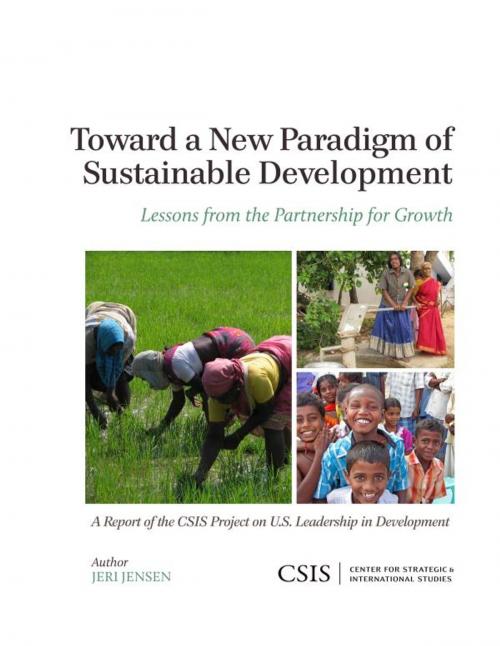Toward a New Paradigm of Sustainable Development
Lessons from the Partnership for Growth
Business & Finance, Economics, Economic Development, Nonfiction, Social & Cultural Studies, Political Science, International, International Security| Author: | Jeri Jensen | ISBN: | 9781442227743 |
| Publisher: | Center for Strategic & International Studies | Publication: | October 18, 2013 |
| Imprint: | Center for Strategic & International Studies | Language: | English |
| Author: | Jeri Jensen |
| ISBN: | 9781442227743 |
| Publisher: | Center for Strategic & International Studies |
| Publication: | October 18, 2013 |
| Imprint: | Center for Strategic & International Studies |
| Language: | English |
The Partnership for Growth (PfG) is one of the first experiments to operationalize the Obama administration’s strategy to bring greater programmatic coherence to U.S. trade and development initiatives in four countries—The Philippines, El Salvador, Ghana, and Tanzania. A key goal was to reinforce a country-led approach, but to also bring to the development table the considerably deeper pockets of non-aid actors, as well as what they are best at bringing—the jobs, training, new businesses, domestic supply chain, and market linkages that are the fundamental ingredients of any sustainable development strategy. This report argues that PfG began the paradigm shift toward a more coordinated and sustainable development strategy by highlighting the benefits of strategic coordination across agencies at the front end of an initiative. It also brought to light the difficulty of using development resources and tools to attract non-aid actors with what is still basically a government-to-government approach to development.
The Partnership for Growth (PfG) is one of the first experiments to operationalize the Obama administration’s strategy to bring greater programmatic coherence to U.S. trade and development initiatives in four countries—The Philippines, El Salvador, Ghana, and Tanzania. A key goal was to reinforce a country-led approach, but to also bring to the development table the considerably deeper pockets of non-aid actors, as well as what they are best at bringing—the jobs, training, new businesses, domestic supply chain, and market linkages that are the fundamental ingredients of any sustainable development strategy. This report argues that PfG began the paradigm shift toward a more coordinated and sustainable development strategy by highlighting the benefits of strategic coordination across agencies at the front end of an initiative. It also brought to light the difficulty of using development resources and tools to attract non-aid actors with what is still basically a government-to-government approach to development.















